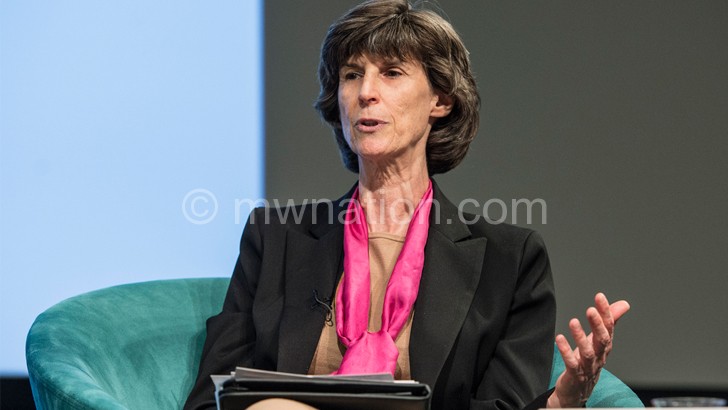Early warning systems critical in averting disasters
Africa’s climate and development agendas are inextricably linked. Floods and droughts cause heavy losses of livelihood and lives, but also derail economic development.
If left unaddressed, climate variability will jeorpadise Africa’s development gains and its aspirations for growth, World Bank Group Vice President, Laura Tuck has said.
Tuck therefore, calls for better warning systems especially by Sub-Saharan Africa’s meteorological and hydrological services to help reduce impacts of climate change and help both government and locals make right decisions.

She also bemoans the inability of most of national hydromet services to provide information that would help in early response to disasters such as droughts and floods.
“If farmers know when it will rain and of any pending disaster they can plan when to move their livestock to safe place and also they would know when to plant,” she says.
Tuck was speaking during a panel discussion on strengthening climate and disaster resilience in Sub-Saharan Africa at the Africa Pavilion, COP21 conference taking place in Paris, France.
Deputy Secretary General of World Meteorological Organisation Jeremiah Lengoasa said most countries in Sub-Saharan are unable to provide reliable hydromet information because they lack infrastructure such as broadband internet and telecommunications.
Lengoasa said national competencies in hydromet are crucial and so too are partnerships within the region.
On his part, Joseph Nagoli, one of the Malawi delegates to the COP21 said countries like Malawi are heavily hit with disasters such as floods because they lack infrastructure, capacity and usually there is inconsistence in the information collected.
“There is need to equip even the local communities to be collecting data. This can be done through training,” he said.
Tuck agreed with Nagoli saying, there is need to invest in strengthening institutions so that hydromet information can be collected at community, national and regional levels.
World Bank in partnership with the Africa Development Bank (AfDB) and World Meteorological Organisation (WMO) then announced that there is $600million for supporting hydrometeorology services in 15 West African countries.
It was concluded that with better warning systems in place, countries can build resilience to climate change.





